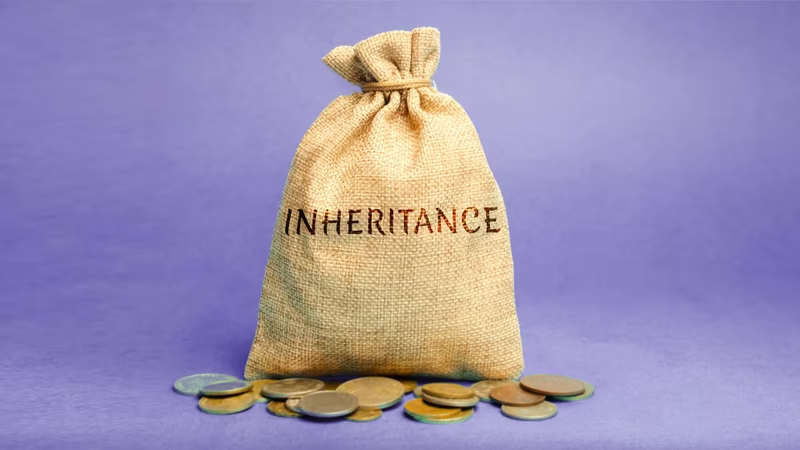Losing a near and dear one can be painful. If the individual has left behind an inheritance in your name, it is important to manage the inheritance money wisely. Receiving a large sum of money as an inheritance has its own challenges. And that's why you should have a money management system in place.
The questions that often go through a person’s mind include “Where should I be spending this money?”, “How much can I spend on myself?”, “Should I invest?” and “Which investment avenue can fetch the highest returns?”
Good money management includes acting strategically. It is the key to ensuring that your inheritance improves your financial stability. It involves making sure that you have distributed your earnings and income in the right proportion. It's the money management 101.
Now, it does not matter how much you have received as an inheritance. Rather, good money management requires you to be familiar with the ways to manage money wisely & live without financial turmoils.
In this article, we will look at some of the factors you need to consider when managing inherited money.
5 Things To Know About Managing Inherited Money
Here are some basic money management tips to help you manage your inherited money better.
1. Consult a personal financial manager or advisor:
A personal financial manager or advisor can create an action plan for your financial needs. They can show you the various ways to manage money wisely after looking at your current spending habits and future plans.
It must be noted that the personal financial manager you choose should have the necessary qualifications and a proven track record. Additionally, this money manager should have at least 5 years of experience advising clients.
A reference check is important before you finalize your decision. Talk to the existing clients of the money manager as well as check for online reviews. You must only proceed if there are no red flags.
2. Keep in mind your financial goals:
Take into consideration your short and long-term goals and how much funds you will require to achieve them. As per your requirements, create a good money management system, where funds are allocated into different streams.
For instance, you can invest in short-duration debt funds or fixed deposits to achieve short-term objectives.
On the other hand, equity funds and stocks are a great option to attain long-term goals, provided you are willing to take high risks. Conservative investors can take the route of safer investment options like the Public Provident Fund.
If you hire a personal financial manager, they can chart a course for you on ways to manage money and generate wealth.
3. Pay off debts:
If you have loans, credit card debts or any other form of borrowed money that you are yet to repay or are repaying, a good money management system calls for using the inherited amount to pay them off.
In case you are repaying multiple debts, it is wise to start with those that have the highest interest rates. This will leave you with some breathing room.
An eliminated or reduced debt can free up your budget, enabling you to allocate more of your funds toward your financial goals.
However, before you pay off your debts, take into account if there are any prepayment penalties. They are fees that are charged by the lender if a borrower pays off the loan early. The contract made between the lender and the borrower will mention if a prepayment penalty is applicable and the amount that will be levied as a penalty.
4. Build an emergency fund:
If there is one thing the COVID-19 pandemic has taught the world, it is that good money management involves having an emergency fund in place.
While there is no right figure for how much you should save for emergencies, it should be sufficient to meet your monthly household expenses for at least 6 months. If you have financial obligations or are the sole earner in your family, the fund size should be large.
In case you have received a considerable amount as an inheritance, you can classify emergency funds into long-term and short-term.
The former includes saving up for events like calamities and medical emergencies. Investments should be made in those instruments where the interest rates are on the higher side.
Short-term emergency funds involve investing in those instruments where withdrawals can be made right away.
A portion of your inherited money should be channelized to the emergency fund if you currently don’t have one. As you manage money wisely, it's essential you avoid making any withdrawals from this fund, unless the situation demands it.
5. Spend in moderation on yourself:
Lastly, it doesn’t hurt to use 5-10% of the inherited money for your satisfaction or something that brings you joy.
While it is crucial to managing money wisely, you can utilize a portion of it to take that vacation you always wanted or make that purchase you have had your eyes on for a long time.
The amount that you spend on yourself should not come in the way of you accomplishing your financial goals.
If you have large loans to repay or pressing financial needs, it is best to use the inherited money to cover them entirely. You can consult with your personal financial manager on the percentage of the inherited money that you can spend on pleasures.
Conclusion
Receiving an inheritance can be life-changing. Therefore, it is essential to know how to manage money wisely and have a good money management system in place, as these can help you build your wealth and secure your future.
Refrain from taking any rushed or emotional decisions as they could prove to be detrimental. Take some time to deal with grief and only proceed to park the inherited money in different instruments once you feel comfortable taking that step.
Remember to talk to a personal financial manager before you make any investments.










